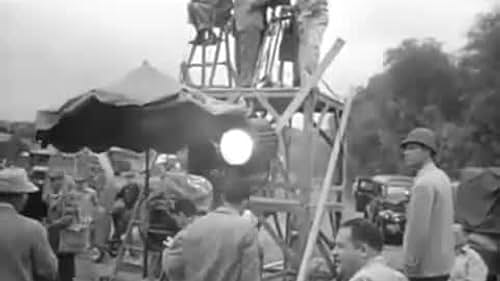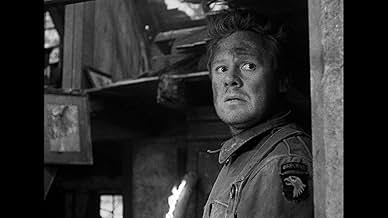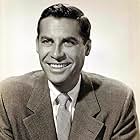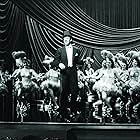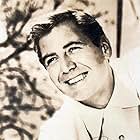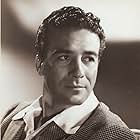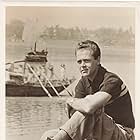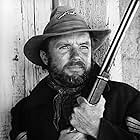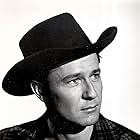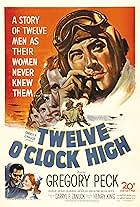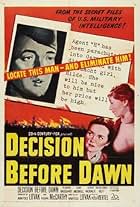Aggiungi una trama nella tua linguaTrue tale about a squad of the 101st Airborne Division coping with being trapped by the Germans in the besieged city of Bastogne, Belgium during the Battle of the Bulge in December of 1944.True tale about a squad of the 101st Airborne Division coping with being trapped by the Germans in the besieged city of Bastogne, Belgium during the Battle of the Bulge in December of 1944.True tale about a squad of the 101st Airborne Division coping with being trapped by the Germans in the besieged city of Bastogne, Belgium during the Battle of the Bulge in December of 1944.
- Vincitore di 2 Oscar
- 5 vittorie e 5 candidature totali
- Hansan
- (as Guy Anderson)
- Garby
- (as Jim Arness)
Trama
Lo sapevi?
- QuizJames Arness (Garby) served in World War II and is the most decorated of the actors in the film. He received the Bronze Star, the Purple Heart, the European-African-Middle Eastern Campaign Medal with three bronze campaign stars, the World War II Victory Medal, and the Combat Infantryman Badge for his service.
- BlooperAt the beginning of the movie Holley (Van Johnson) enters the tent wearing a class A uniform. Although currently worn above the ribbon rack, at the time the film takes place, the Combat Infantryman Badge was worn on the left breast pocket, below the ribbons.
- Citazioni
[last lines]
Holley: [as they begin marching from the battlefield, passing their replacements as they enter] Hey, Kinnie - what ever happened to Jody?
Sgt. Kinnie: All right, come on! Come on! What do you want these guys to think, you're a bunch of WACs? Alright, alright pick it up now. Hut, two, three. Hut, two, three, four. Hut, two, three, four. You had a good home but you left...
I Company: You're right!
Sgt. Kinnie: You had a good home but you left...
I Company: You're right!
Sgt. Kinnie: Jody was there when you left...
I Company: You're right!
Sgt. Kinnie: Your Baby was there when you left...
I Company: You're right!
Sgt. Kinnie: Sound off!
I Company: One, two
Sgt. Kinnie: Sound off!
I Company: Three, four.
Sgt. Kinnie: Cadence Count
I Company: One, two, three, four. One, two, three, four!
Sgt. Kinnie: Your baby was lonely - as lonely as could be...
I Company: 'Til Jody provided company!
Sgt. Kinnie: Ain't it great to have a pal...
I Company: Who works so hard to keep up morale!
Sgt. Kinnie: Sound off!
I Company: One, two
Sgt. Kinnie: Sound off!
I Company: Three, four.
Sgt. Kinnie: Cadence Count
I Company: One, two, three, four. One, two, three, four!
Sgt. Kinnie: You ain't got nothing to worry about...
I Company: He'll keep her happy till I get out!
Sgt. Kinnie: But you won't get home 'til the end of the war...
I Company: In nineteen hundred and seventy-four!
Sgt. Kinnie: Sound off!
I Company: One, two.
Sgt. Kinnie: Sound off!
I Company: Three, four...
- Versioni alternativeAlso available in a computer colorized version.
- ConnessioniFeatured in America at the Movies (1976)
- Colonne sonoreSanta Claus is Comin' to Town
(uncredited)
Written by J. Fred Coots and Haven Gillespie
Sung by the soldiers
It's hard to believe that this film was not shot on location; but on a Metro sound stage. And Metro's Culver City was turned into the only outdoor location for the snow-covered, rubble-strewn town of Bastogne under siege, which was tenaciously held by the 101st, under the command of Brig. General Anthony McAuliffe.
With the exception of Van Johnson as Pvt. Holly who was high profile on the Metro lot in his time, and George Murphy as Pvt. Stazak, the rest of the cast were character-type actors who filled their roles perfectly. James Whitmore as Sgt. Kinnie is drilling the squad in the opening scenes.
The squad members talk of an enjoyable furlough in Paris which is suddenly cut short by the German breakthrough in the Ardenne. Ptv. Stazak hopes of going home are dashed because his authorised documents have not come through before the squad moves up front. Douglas Fowley as Pvt. Kippton seems to be the best in the squad at bellyaching.Maybe it's his dentures that make him a sourpuss. But Fowley's dentures turn into a class act; clicking away to the old song, "I Surrender Dear," through the courtesy of a German propaganda broadcast heard over the radio in a Sherman tank. Denise Darcel comes as a welcome relief of feminine pleasure; not out of place in the town of Bastogne itself. In an indoor scene, Pvt. Holly's eyeballs go into left-to-right overdrive as he stares at Denise's buxom rear end descending a flight of stairs. Then there's Holly again, nursing stolen newly-laid eggs, as valuable as gold nuggets. He's about to scramble them over a fire when the squad is told to saddle up and move out. Not for the first time does Johnson (Pvt. Holly) yell, "oh no!" A expression he's used in past movies also. The broken eggs in his upturned helmet are now a problem. In the end it's disaster. The German artillery scramble the eggs for Holly. Problem solved!
On a three man patrol, Holly, Hodiak as Janness, Montalban as Rodriguez, intercept and force a jeep carrying a Major and two sergeants to stop and identify themselves. The knowledge that Germans are infiltrating in GI uniforms has made the patrol suspicious so the Major is asked how the Dodgers made out in 1944. The Major hesitates,but the Sergeant in the rear seat asks Holly who Betty Grable is married to. Montalban shouts back, "Cesar Romero". The Major says Romero is out. "Betty Grable is married to Harry James". The tense atmosphere relaxes. The patrol is convinced they're friendly.
What is displayed authentically on this studio sound stage is the icy, bone-chilling atmosphere of the battlefield. The men hunkered down; the deeper the better, in their foxholes. Throughout nearly all this movie there is the constant rise and fall in the background of continuous artillery fire, like a rolling thunder. It never seems to cease. Sometimes it's close, sometimes distant. That, along with the freezing fog hanging like a thick whitish-grey blanket in the air, enveloping everything, gives off an atmosphere of crisis; a feeling of fearful tension. The men endeavour to dispel the fear with humour. Waiting and wondering when the enemy will appear ghost-like out of the mist-shrouded forest.
Near the end of the movie, Leon Ames gives a good performance as a Army Chaplain. Trying to explain the reason for this necessary trip to Europe, to kill off a murderous political system that has already killed off millions. Before the end, the tables turn in the Allies favour. Sergeant Kinnie notices his shadow against the snow. The sun is breaking through and the mist rises. Allied tactical air power is back in business again with a vengeance.
Veteran director William Wellman was not found wanting when he directed this movie. He had already proved himself with, "The Story of GI Joe", in 1945. Antiwar film? Any war film well made and convincing can be antiwar, and you do not need blood all over the silver screen to prove it. Antiwar or not, World War Two was a "popular" war. The reasons stuck out a mile. The Army Chaplain said so in so many words.
The Ardennes offensive caught the Allies unawares, in short, too cocksure. By late 1944, battered the German forces may have been. But they still had a few nasty shots in their locker to scare the living daylights out of the Allied Command. The allies paid the penalty in lost ground and casualties for General Eisenhower's insistence for a broad front advance. We thought the Germans had run out of fighting steam, but old Field Marshal Karl Rudolf Gerd Von Rundstedt thought different!
I più visti
- How long is Battleground?Powered by Alexa
Dettagli
Botteghino
- Budget
- 1.631.000 USD (previsto)
- Tempo di esecuzione1 ora 58 minuti
- Colore
- Proporzioni
- 1.37 : 1
Contribuisci a questa pagina


